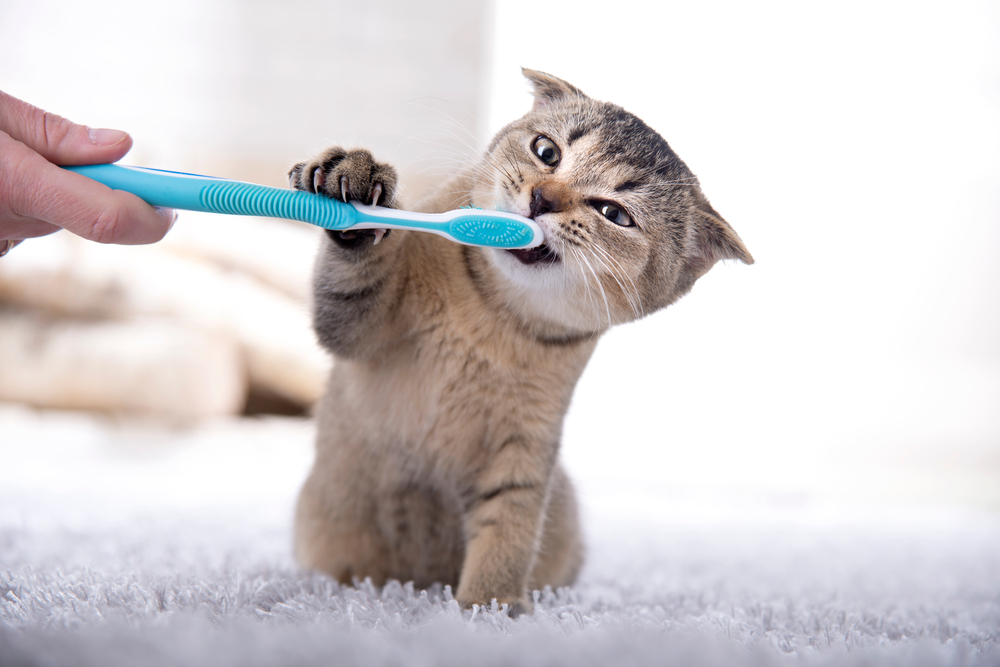
Practicing good oral hygiene for your dog and cat is essential for their overall health. Assessing your pets oral health is an important part of our examinations here at the clinic, but it is also important for you to help your pet get the right products daily to make sure we are preventing progression of periodontal disease in between veterinary appointments. For a list of all the dental products on the market that have been tested by the Veterinary Oral Health Council to make sure they are effective in slowing periodontal disease, go to VOHC.org. Here are some tips to help you care for their teeth at home:
For Both Dogs and Cats:
Brush Their Teeth
Use a pet-safe toothbrush and toothpaste (never use human toothpaste, as it contains ingredients harmful to pets).
Start slowly, letting them get used to the brush and paste by allowing them to lick it first. Gradually introduce the brushing motion.
Aim to brush their teeth daily.
Dental Chews and Toys
Provide dental treats or toys designed to reduce plaque and tartar buildup.
Ensure they are appropriately sized and safe for your pet's chewing habits. Never allow your pet to chew on these treats or toys unsupervised, to make sure your pet remains safe.
Water Additives
Use veterinarian-approved dental water additives that help reduce plaque and freshen breath. Follow the instructions on the product for proper use.
Specialized Dental Diets
Some pet food brands offer dental diets designed to help clean teeth and reduce tartar. Examples: Hills T/D or Purina DH.
Consult your veterinarian for recommendations.
Regular Checks
Inspect their teeth and gums regularly for signs of redness, changes in chewing habits, swelling, bad breath, or tartar buildup. These may indicate dental problems.
Cat-Specific Tips:
Introduce Gradually: Cats can be more sensitive, so take it slow when introducing toothbrushing. You may need to use a smaller toothbrush or a fingertip brush.
Flavor Options: Use cat-specific toothpaste in flavors like chicken or fish to make the experience more enjoyable.
Dog-Specific Tips:
Chew Time: Dogs typically enjoy chewing, so use this to your advantage by providing long-lasting dental chews or bones approved by your vet.
Regular Play: Playing with rope toys or rubber toys can also help clean their teeth naturally.
Veterinary Support:
Schedule regular veterinary dental cleanings at The Animal Hospital of New Albany. Your vet can identify and address any oral health issues that at-home care may not fully resolve.
Consistency is key! Start slow and make dental care a positive experience for your furry friends. 😊 According to the American Veterinary Dental Society, more that 80% of dogs and 70% of cats show signs of oral disease by the time they are 3 years old. It is important to monitor your pets dental health and use VOHC.org approved dental products daily. We can also schedule regular dental cleanings here at the clinic annually to remove all the tartar and reset your pet's mouth. Please call The Animal Hospital of New Albany 614-855-9643 if you would like to schedule an appointment or have any questions about the dental health of your pet.




